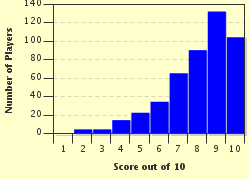Quiz Answer Key and Fun Facts
1. The correspondence theory of truth says that a statement has to accurately agree with the subject that is being discussed in every way. Therefore, with reference to this photo, if I said "the cat sat on the mat", would I have spoken the truth?
2. Which ancient Greek philosopher, who was a student of Plato, stated of truth that "To say of what is that it is not, or of what is not that it is, is false, while to say of what is that it is, and of what is not that it is not, is true"?
3. Which ancient Indian religion defines truth as being "unchangeable", having "no distortion" and being "beyond distinctions of time, space and person"?
4. What word, beginning with L, helps us with our reasoning when we are endeavouring to work out whether a proposition, that leads up to an ultimate answer, is true or not?
5. In the Boolean algebraic mathematical model of logical truth, how is a true statement represented?
6. Islamic philosopher and polymath Avicenna was born in central Asia circa 908. How did he define truth?
7. Both Hegel and Marx were proponents of the constructivist theory of truth. They believed that truth is constructed by which of the following very broad groups?
8. One of the most important concepts about truth, perhaps, is that stressed by this Italian priest, theologian and philosopher who lived from 1225 until 1274. He believed that, although God can inspire men to realise certain truths, man also has a natural ability to recognise things without this guidance. Who was he?
9. This man, born in Germany in 1724, is considered to be a central figure in modern philosophy. He defined truth as an object conforming to our cognitive processes, rather than our cognitive processes adjusting to conform to that object. Who was he?
10. Yet another German philosopher, Friedrich Nietzsche, believed that the "will to power" in every individual drove the search for truth. What is a simplified interpretation of this term?
Source: Author
Creedy
This quiz was reviewed by FunTrivia editor
looney_tunes before going online.
Any errors found in FunTrivia content are routinely corrected through our feedback system.

